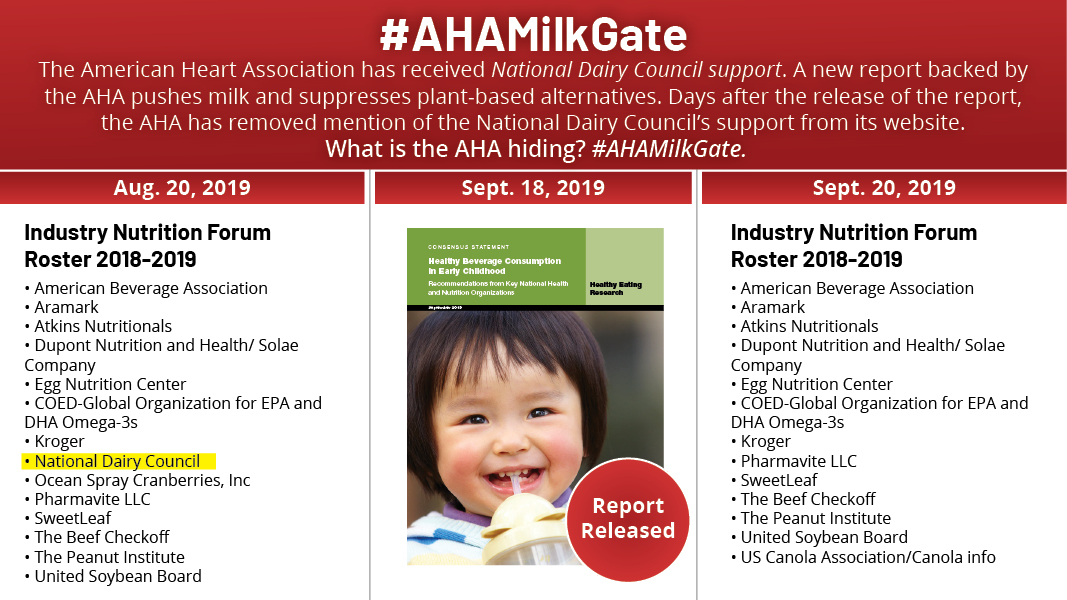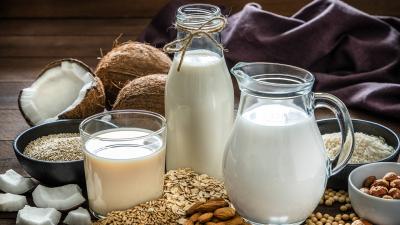Physicians Group Demands AHA Withdraw New Beverage Guidelines for Children

WASHINGTON— The Physicians Committee for Responsible Medicine, a nonprofit with 12,000 doctor members, has asked American Heart Association (AHA) President Robert Harrington, MD, to withdraw the AHA’s recently-recommended beverage guidelines for children, due to concerns over dairy industry funding.
The guidelines, describing what children ages five and younger should drink, favor cow’s milk over non-dairy milks. Healthy Drinks, Healthy Kids lists the American Heart Association, the American Academy of Pediatrics, the Academy of Nutrition and Dietetics, and the American Academy of Pediatric Dentistry as both its consensus organizations and expert panel members. The National Dairy Council makes annual payments to the American Heart Association for membership in its Industry Nutrition Forum.
“While we support the recommendations for breast milk and water, the guidelines promoting cow’s milk are harmful to children,” says Susan Levin, MS, RD, a registered dietitian with the Physicians Committee. “It is important to note too that these new guidelines on preferred beverages for children that favored milk were funded in part by the dairy industry.”
Milk is the number one source of saturated fat in children’s diets. Abundant research shows that milk does not improve bone health. A 2012 study published by the American Medical Association in the Archives of Pediatric and Adolescent Medicine showed that active children who consume the largest quantities of milk have more bone fractures than those who consume less.
Approximately 65 percent of humans have a reduced ability to digest lactose after infancy, according to the National Institutes of Health. More than 10 million U.S. children struggle with milk allergies, the second most common food allergy. And milk also contains sugar in the form of lactose, animal growth factors, and occasional drugs and contaminants.
“Calcium is an essential nutrient but if children get calcium from milk, they miss the beta-carotene, iron, and fiber in vegetables,” Levin explains. “Children can get all the calcium they need from nondairy sources such as beans, tofu, broccoli, kale, collard greens, breads, cereals, and nondairy, calcium-fortified beverages, without any of the health detriments associated with dairy product consumption.”
Media Contact
Jeanne Stuart McVey
202-527-7316
jmcvey[at]pcrm.org
Founded in 1985, the Physicians Committee for Responsible Medicine is a nonprofit organization that promotes preventive medicine, conducts clinical research, and encourages higher standards for ethics and effectiveness in education and research.









